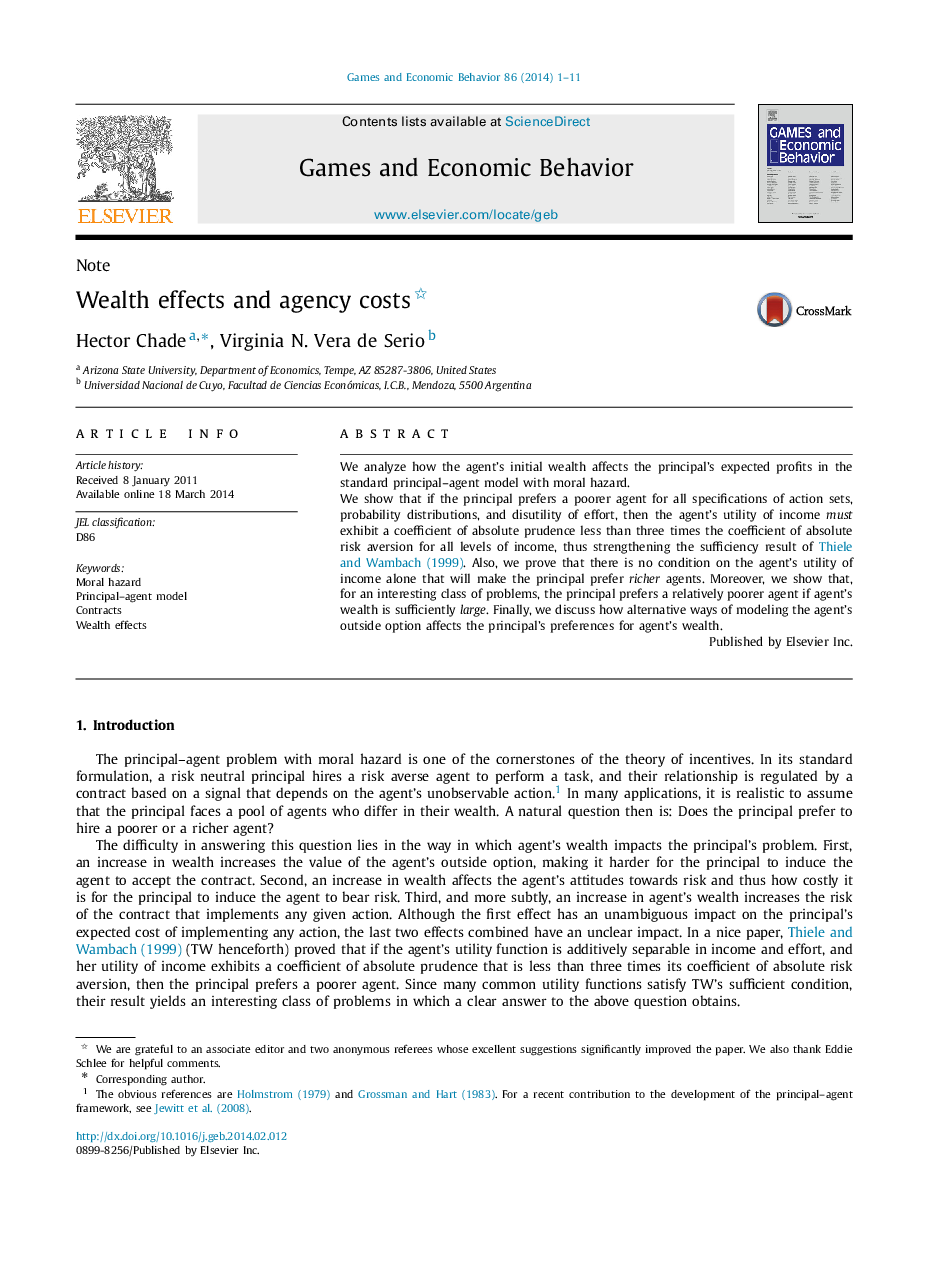| Article ID | Journal | Published Year | Pages | File Type |
|---|---|---|---|---|
| 5071707 | Games and Economic Behavior | 2014 | 11 Pages |
Abstract
We show that if the principal prefers a poorer agent for all specifications of action sets, probability distributions, and disutility of effort, then the agent's utility of income must exhibit a coefficient of absolute prudence less than three times the coefficient of absolute risk aversion for all levels of income, thus strengthening the sufficiency result of Thiele and Wambach (1999). Also, we prove that there is no condition on the agent's utility of income alone that will make the principal prefer richer agents. Moreover, we show that, for an interesting class of problems, the principal prefers a relatively poorer agent if agent's wealth is sufficiently large. Finally, we discuss how alternative ways of modeling the agent's outside option affects the principal's preferences for agent's wealth.
Related Topics
Social Sciences and Humanities
Economics, Econometrics and Finance
Economics and Econometrics
Authors
Hector Chade, Virginia N. Vera de Serio,
